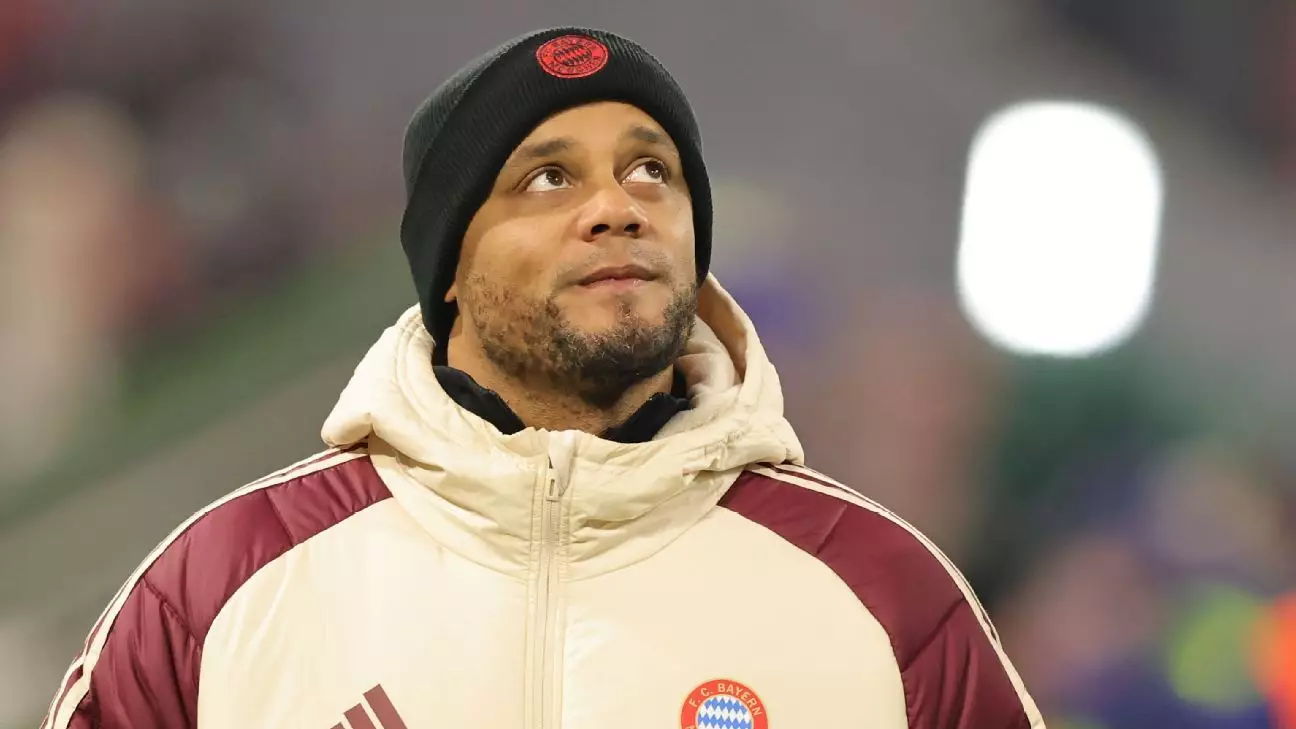In the intricate tapestry of German football terminology, the term “Bayern-Dusel” has held a prominent place since the 1970s. This compound word reflects a phenomenon associated with Bayern Munich, depicting a blend of extraordinary luck and fortunate events during crucial match moments. The notion suggests that Bayern often navigates challenges unscathed, emerging victorious despite not always deserving it. However, as the current season unfolds, there is a growing dissonance between this concept and the team’s actual performances on the pitch. Rather than fortuitous last-minute triumphs, Bayern finds itself salvaging draws from potentially dire situations, raising questions about luck and resilience.
This past weekend’s match against Bayer Leverkusen serves as a perfect illustration. Observers were taken aback not only by Bayern’s inability to mount a single shot on goal throughout the first half but also by their uncanny ability to maintain a goalless draw. The cold, unforgiving atmosphere in Leverkusen highlighted the disparity in performance levels, with Bayern clinging onto a scoreline that reflected nothing of their offensive capabilities. Even as they escaped unscathed, the term Bayern-Dusel echoed ominously in the background, as pivotal moments went their way, preserving an eight-point lead at the top of the Bundesliga.
Defensive Vulnerabilities Against Celtic
Fast forward to the UEFA Champions League clash against Celtic, and the unsettling state of Bayern’s play becomes even more pronounced. The team’s defense exhibited alarming disorganization, yielding multiple opportunities for the Scottish champions. Key players like Josip Stanisic and Dayot Upamecano struggled, while a lack of cohesion across the defensive line was glaring. The fact that a goal from a recently recovered Alphonso Davies, scored deep into stoppage time, was needed to secure a draw underscores the gravity of the situation. Bayern’s performance raised eyebrows, especially when Kicker magazine succinctly stated that “Die Leistungen stimmen nicht mehr” — the performances are simply not right.
With the Champions League final looming in their home stadium, the Allianz Arena, there is little margin for error. Bayern’s aspirations of reclaiming the European crown seem distant when benchmarked against their current level of play, particularly ahead of a demanding round-of-16 tie with Leverkusen, a side that has proven troublesome for them in recent outings.
Analyzing the core of the Bayern squad, one would assume the presence of top-tier talents like Manuel Neuer, Joshua Kimmich, Jamal Musiala, and Harry Kane should assure success. Yet, even with such high-caliber names, the team appears to be limping through fixtures. The absence of a reliable backup for Kane becomes glaringly obvious, especially as he navigates injury issues. The decision to loan out promising young talent Mathys Tel continues to baffle many analysts, illustrating the precarious nature of Bayern’s current squad depth.
Musiala, who is typically a game-changer, has notably vanished from the limelight during critical matches against both Leverkusen and Celtic. The frenetic energy and high tempo once associated with Bayern’s play now seem stifled, with fatigue possibly attributed to their demanding fixture schedule. This lack of dynamism begs the question: Do they have the stamina and mental fortitude to thrive in the coming weeks?
Despite the collective struggles, the role of manager Vincent Kompany has gone largely unexamined. His tranquil demeanor has been lauded, which may lend a sense of calm during chaos, but in traditional Bayern fashion, direct confrontation of issues has always been the norm. Is it time for Kompany to shift gears? The stakes are rising, and as Bayern faces Eintracht Frankfurt, who have proven potent this season, a strong response is imperative.
The upcoming match will not only test the players’ resilience but also Kompany’s ability to rejuvenate the squad’s ambitions. Eintracht, freshly invigorated and featuring threat players like Hugo Ekitike and Mario Götze, could exploit any defensive frailty displayed by Bayern, especially in the absence of their leading stars.
As Bayern Munich navigates this precarious phase of their season, questions abound about their luck, performance, and strategy. While they hold an enviable lead in the Bundesliga, uncertainty blankets their Champions League aspirations. With mounting problems in player depth and fitness, alongside a need for revitalized tactical approaches, Bayern stands at a crucial crossroads. Will they recapture their old spark, or will the term Bayern-Dusel evolve into a more sobering descriptor of their fate this season? The answers may unfold dramatically in the weeks and months ahead.

